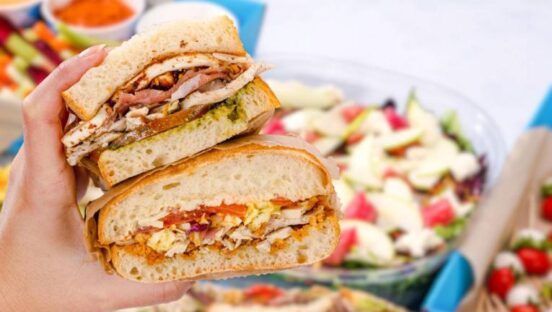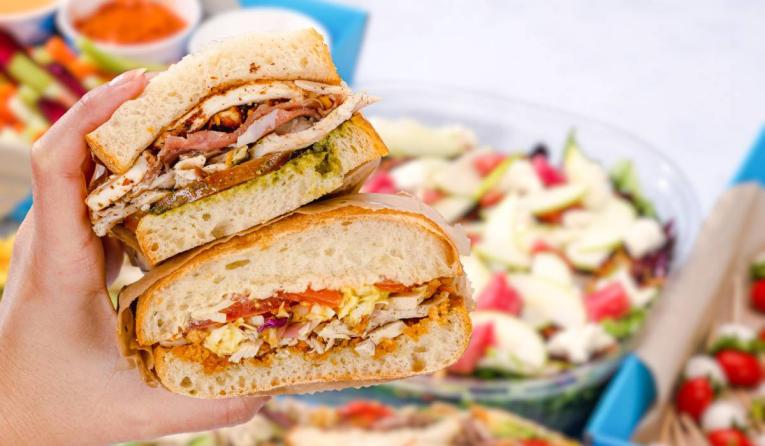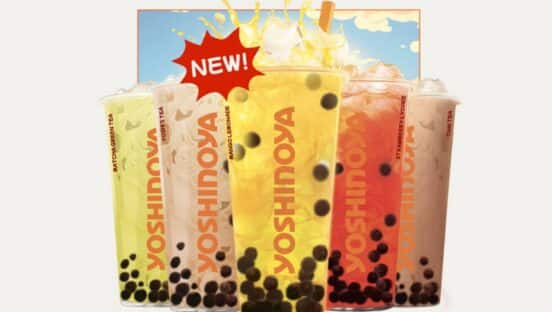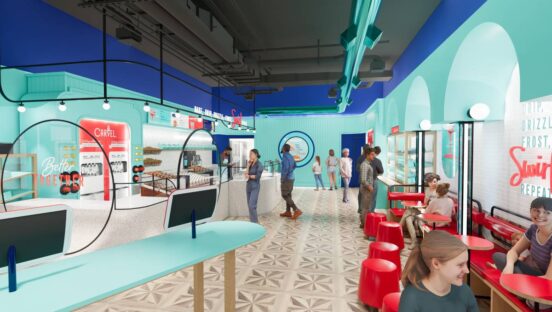When Mendocino Farms CEO Kevin Miles lists off the challenges of 2022, it’s not far from what others have experienced—inflationary commodity prices, supply chain stoppages, and labor constraints.
But unlike most of its peers, these headwinds didn’t prevent the California-based fast casual from capturing a record development year.
Now over 50 restaurants systemwide, Mend opened nine locations in its fiscal 2022. If you go by the calendar year through December 31, it was 10 openings, with the final one coming the week between Christmas and New Year’s Day.
“2022 was a pretty good year for us,” Miles says. “A great year for us actually.”
Unprecedented unit growth wasn’t the only thing setting Mendo apart last year. At the beginning of 2022, the fast casual released a rebrand featuring an evolved brand purpose. Some of the biggest changes: the chain switched its name from Mendocino Farms Sandwich Market to Mendocino Farms; the company’s well-known blue cow logo was paired with modern font; restaurant interiors showcase enhanced signage and warm earth ones; and friction was reduced on web and app platforms.
Brainstorming for the reimage began in mid-2019 when Mendo opened its first Houston location. Before this timeframe, the company had done little consumer research, but it decided to partner with an agency to determine what the brand meant to people.
One of the biggest learnings was that “Mendocino Farms Sandwich Market” was too confusing; it made guests think of a typical grocery store instead of a restaurant. Also, Mendo sells soups and salads, and it didn’t want to be pigeonholed as a sandwich chain. Forty-five percent of the chain’s menu is salad. The company also worked on upgrading its packaging so that its “eat happy” ethos is at the forefront.
READ MORE: How Mendocino Farms is Rethinking the Fast Casual Paradigm
To be clear, the CEO says, this wasn’t meant to cover some glaring hole in the brand. He wouldn’t describe it as an overhaul—it’s more of a modernization. It was about making Mendo easier to explain to customers.
“It wasn’t a customer request or a team request, but the brand hadn’t really hadn’t dug much into what does the consumer really think and how do we convey this brand in a more whimsical but serious quality food way?” Miles says.
It was rolled out to the entire system by the end of 2022. The only task that remains is new signage in some of the older restaurants in California. The brand didn’t think it was necessary to complete the exterior facelift at every location, but it did redo the interior at all stores, including photography, menu boards, and uniforms.
“It truly was a refresh,” Miles says. “It wasn’t a new vision or anything changing the brand. It was just updating our current logo into a new current logo and something more whimsical, like the blue cow that we have. It’s resonated with the consumer really well.”
Another key upgrade was the expectation of new items hitting the menu every six to eight weeks. In January, Mendo launched the Chicken Parm Dip Sandwich and the Countryside Cobb Salad, among other products.
With inflation squeezing wallets, customers are forced to make decisions, and Miles believes Mendo wins because of quality. Founders Ellen Chen and Mario Del Pero built the concept around bringing fine dining to the fast-casual segment, he explains.
“It is definitely a culinary adventure that you go, ‘Wow, this is a pretty amazing sandwich that you might find somewhere else,’” Miles says. “So that’s where we’re seeing the customer come in and really appreciate what we provide from our quality.”
All future restaurants will have this new brand design, including the 14 planned for 2023. As of now, Mendo is based in California and Texas, but later in the year, it will add Seattle to its list of markets.
The brand’s site selection process begins by understanding its affluent core customer base—where they live, work, and play. After establishing guest identity, Mendo maps it across the country to see what trade areas are a match. The question then becomes, how can the chain get there? What does real estate, supply chain, and distribution look like? The chain isn’t in the business of a one-and-done unit either. Pre-pandemic, there were three stores in Houston, but the chain was able to open two more in the past few years. Similar growth has occurred in Dallas, which also has five stores. The idea is for multiple restaurants to open in Seattle, as well. Mendo chose the Pacific Northwest market because of the brand awareness it can leverage from Northern California stores.
“So with the world of tech between Seattle and Northern California we feel like there’s some brand awareness there that allows us to maybe get a little bit of a head start versus jumping all the way across the country as an example,” Miles says.
Mendo is primarily looking at states west of Texas, like Nevada, Arizona, and Colorado. Once those are properly penetrated, the fast casual would start marching eastward. All of that growth will be from the company and not operators.
“Mendo being the quality brand with the number of items we have, it’s not as easily franchisable at this point in time,” Miles says. “So that’s not something we’re considering at all at this point.”
The evolution is ongoing. Miles says there’s more opportunity to increase Mendo’s digital presence, whether that’s reducing friction for online orders or creating a more robust loyalty program, beyond its current surprise-and-delight system. Newer restaurants are being designed with takeout/delivery in mind so off-premises guests and dine-in customers aren’t shoulder-to-shoulder.
Mendo is planning to open an approximately 1,500-square-foot location that’s pickup-focused with fewer seats inside and outside. Miles also suggested that if the brand stumbled upon a second-generation site with a drive-thru or new construction that’s convenient for a pickup window, the brand would welcome that conversation. It’s important to note, however, that these sets of prototypes would be for legacy California markets where recognition is already high. In new places like Seattle, the chain wants to ensure success with a core design.
No matter where Mendo grows or how big it becomes, the underlying values—emphasized by the refresh—will remain the same.
“It’s an eat happy ethos with a culinary explorer, allowing that customer to come in and try something new and different, Miles says. “Mendo is an up-and-growing brand and we’re excited to bring it across the country over the next several years.”









